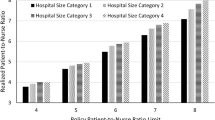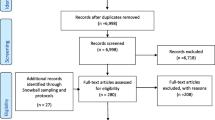Abstract
Pay-for-performance schemes share the common approach of offering financial incentives to healthcare providers for achieving specified performance targets. Such schemes are becoming increasingly popular with healthcare policy makers and funders worldwide, despite a relative lack of evidence on their long-term effects. This article examines the emerging evidence and its likely consequences for the future development of pay for performance. Successful schemes are likely to be those that use evidence-based targets; focus on aspects of care for which there is a professional consensus on the need for improvement; incentivize practitioners across the range of performance; allow for professional judgment and discretion; offer adequate incentives; adjust for risks outside practitioners’ control; involve patients in the design and implementation stages; make performance data publicly available; have a proper infrastructure in terms of adequate information technology systems and a receptive group of professionals; and are supported by other effective quality improvement initiatives. However, even the most successful schemes carry the risk of unintended effects, such as loss of professionalism, neglect of unincentivized activities, and fraudulent behavior. These risks need to be weighed against the potential benefits of financial incentives, and, in any future pay-for-performance schemes, should be mitigated during development and carefully monitored during implementation.

Similar content being viewed by others
References
Australian Government: Medicare Australia. Practice incentives program (PIP) [online]. Available from URL: http://www.medicareaustralia.gov.au/providers/incentives_allowances/pip.shtml [Accessed 2007 Mar 31]
Pink G, Brown A, Studer M, et al. Pay for performance in publicly financed healthcare: some international experience and considerations for Canada. Healthc Pap 2006; 6: 9–26
Greb S, Focke A, Hessel F, et al. Financial incentives for disease management programmes and integrated care in German social health insurance. Health Policy 2006; 78(2–3): 295–305
Custers T, Arah O, Klazinga N. Is there a business case for quality in The Netherlands? A critical analysis of the recent reforms of the health care system. Health Policy 2007 Jul; 82(2): 226–39
Perkins R, Seddon M, Effective Practice Informatics and Quality (EPIQ). Quality improvement in New Zealand healthcare: part 5. Measurement for monitoring and controlling performance: the quest for external accountability. N Z Med J 2006; 119(1241): U2149
Epstein A. Pay for performance at the tipping point. N Engl J Med 2007; 356: 515–7
Brush J, Krumholz H, Wright J, et al. American College of Cardiology 2006 principles to guide physician pay-for performance programs. J Am Coll Cardiol 2006; 48: 2603–9
Institute of Medicine, Board on Health Care Services, Pathways to Quality Health Care Series. Rewarding provider performance: incentives in Medicare. Washington, DC: The National Academies Press, 2007
Centers for Medicare and Medicaid Services. The physician quality reporting initiative: overview [online]. Available from URL: http://www.cms.hhs.gov/PQRI/ [Accessed 2008 Jan 4]
Mangin D, Toop L. The quality and outcomes framework: what have you done to yourselves? Br J Gen Pract 2007; 57(539): 435–7
Institute of Medicine. Crossing the quality chasm: a new health system for the 21st century. Washington, DC: National Academy Press, 2001
Leatherman S, Sutherland K, editors. The quest for quality in the NHS. London: Nuffield Trust and Her Majesty’s Stationery Office, 2003
Weingarten S, Henning J, Badamgarav E, et al. Interventions used in disease management programmes for patients with chronic illness: which ones work? Meta-analysis of published reports. BMJ 2002; 325: 925–8
National Committee for Quality Assurance. The state of health care quality 2006. Washington, DC: NCQA, 2006
The Leapfrog Group: informing choices, rewarding excellence [online]: Available from URL: http://www.leapfroggroup.org [Accessed 2007 Feb 22]
Triggle N. GP pay ’should have been capped’. BBC News Online 19 January 2007 [online]. Available from URL: http://news.bbc.co.Uk/1/hi/health/6276793.stm [Accessed 2007 Oct 3 ]
Stark P. How will the new congressional leadership approach pay for performance for physicians, hospitals, health plans, and others [keynote address]. National Committee for Quality Assurance, 2006 Dec 1. The Henry J Kaiser Family Foundation [online]. Available from URL: http://www.kaisernetwork.org/health_cast/hcast_index.cfm?display=detail&hc=1985 [Accessed 2007 Aug 1]
Roland M. Linking physicians’ pay to the quality of care: a major experiment in the United Kingdom. N Engl J Med 2004; 351: 1448–54
Dudley R, Frolich A, Robinowitz D, et al. Strategies to support quality-based purchasing: a review of the evidence [technical review 10; AHRQ publication 04-0057]. Rockville, (MD): Agency for Healthcare Research and Quality, 2004
Petersen L, Woodard L, Urech T, et al. Does pay-for-performance improve the quality of health care? Ann Intern Med 2006; 145: 265–72
Grady K, Lemkau J, Lee N, et al. Enhancing mammography referral in primary care. Am J Prev Med 1997; 26: 791–800
Hillman A, Ripley K, Goldfarb N, et al. Physician financial incentives and feedback: failure to increase cancer screening in Medicaid managed care. Am J Public Health 1998; 88: 1699–701
Rosenthal M, Frank R, Li Z, et al. Early experience with pay-for-performance: from concept to practice. JAMA 2005; 294: 1788–93
Pourat N, Rice T, Tai-Seale M, et al. Association between physician compensation methods and delivery of guideline-concordant STD care: is there a link? Am J Managed Care 2005; 11: 426–32
Bridges to Excellence: BTE program evaluation, 2006 [online]. Available from URL: http://www.bridgestoexcellence.org/assets/Documents/BTE-Program-Evaluation-7-26-06.pdf [Accessed 2007 Aug 14]
Doran T, Fullwood C, Gravelle H, et al. Family practice performance in the first year of the UK’s new ‘pay for performance’ scheme: good clinical practice or gaming? N Engl J Med 2006; 355: 375–84
Campbell S, Roland M, Middleton E, et al. Improvements in quality of clinical care in English general practice 1998–2003: longitudinal observational study. BMJ 2005; 331: 1121–3
Campbell S, Reeves D, Kontopantelis E, et al. Improvements in clinical quality in English primary care before and after the introduction of a pay for performance scheme: longitudinal cohort study. N Engl J Med 2007; 351: 181–90
Centre for Health Economics, University of York. The GMS quality and outcomes framework: are the Quality and Outcomes Framework (QOF) indicators a cost-effective use of NHS resources? York: Centre for Health Economics, 2007
Baker D, Middleton E. Cervical screening and health inequality in England in the 1990s. J Epidemiol Community Health 2003; 57: 417–23
Department of Health. QOF guidance [online]. Available from URL: http://www.dh.gov.uk/en/Policyandguidance/Organisationpolicy/Primarycare/Primarycarecontracting/QOF/DH_4125653 [Accessed 2008 Jan 1]
Roland M. The Quality and Outcomes Framework: too early for a final verdict. Br J Gen Pract 2007; 57: 525–7
The Information Centre. National Quality and Outcomes Framework statistics for England 2006/07. Leeds: The Information Centre for Health and Social Care, 2007
National Committee for Quality Assurance (NCQA). HEDIS® measure development process [online]. Available from URL: http://web.ncqa.org/tabid/414/Default.aspx [Accessed 2008 Jan 4]
Hillman AL, Ripley K, Goldfarb N, et al. The use of physician financial incentives and feedback to improve pediatric preventive care in Medicaid managed care. Pediatrics 1999; 104: 931–95
Fairbrother G, Hanson L, Friedman S, et al. The impact of physician bonuses, enhanced fees, and feedback on childhood immunization coverage rates. Am J Public Health 1999; 89: 171–5
Fairbrother G, Siegel M, Friedman S, et al. Impact of financial incentives on documented immunization rates in the inner city: results of a randomized controlled trial. Ambul Pediatr 2001; 1: 206–12
Doran T, Fullwood C. Pay for performance: is it the best way to improve control of hypertension? Curr Hypertens Rep 2007 Nov; 9(5): 360–7
Sipkoff M. Is pay for performance part of the cure or the problem? Managed Care 2005 Jul [online]. Available from URL: http://www.managedcaremag.com/archives/0507/0507.p4p.html [Accessed 2007 Oct 3]
Department of Health. New primary care contracts: what they mean for employers of nurses in general. London: Department of Health, 2004
McDonald R, Harrison S, Checkland K, et al. Impact of financial incentives on clinical autonomy and internal motivation in primary care: ethnographic study. BMJ 2007; 334: 1357–62
Hillman A, Pauly M, Kennan K, et al. HMO managers’ views on financial incentives and quality. Health Aff 1991; 10: 207–19
Kouides R, Bennett N, Lewis B, et al. Performance-based physician reimbursement and influenza immunization rates in the elderly. Am J Prev Med 1998; 14: 89–95
Casalino L, Alexander G, Jin L, et al. General internists views on pay-for-performance and public reporting of quality scores: a national survey. Health Aff 2007; 26: 492–9
Dyer C. Bristol doctors found guilty of serious professional misconduct. BMJ 1998; 316: 1924
Dyer C. Gynaecologist struck off the medical register. BMJ 2000; 321(7256): 258
Commonwealth Fund, Quality matters: public reporting of physician group quality data. 2006 Feb 16 [online]. Available from URL: http://www.commonwealthfund.org/publications/publications_show.htm?doc_id=356761 [Accessed 2007 Aug 11]
The Information Centre. Online GP practice results database [online]. Available from URL: http://www.qof.ic.nhs.uk/ [Accessed 2007 Aug 11]
Fiscella K, Franks P, Gold MR, et al. Inequality in quality: addressing socioeconomic, racial, and ethnic disparities in health care. JAMA 2000; 283: 2579–84
Deci E, Koestner R, Ryan R. A meta-analytic review of experiments examining the effects on extrinsic rewards on intrinsic motivation. Psychol Bull 1999; 125: 627–88
Marshall M, Harrison S. It’s about more than money: financial incentives and internal motivation. Qual Saf Health Care 2005; 14: 4–5
Plested W. Fair pay a sounder approach than ‘pay for quality’. Am Med News 2004 Mar 1 [online]. Available from URL: http://www.ama-assn.org/amednews/2004/03/01/edca0301.htm [Accessed 2007 Nov 11]
The Information Centre. Quality and Outcomes Framework exception report [online]. Available from URL: http://www.ic.nhs.uk/statistics-and-data-collections/audits-and-performance/qof/quality-and-outcomes-framework-exception-report [Accessed 2007 Aug 11]
Gravelle H, Sutton M, Ma A. Treat and cheat? Doctor behaviour under a pay for performance contract [CHE research paper 28]. York: Centre for Health Economics, University of York, 2007 [online]. Available from: http://www.york.ac.uk/inst/che/pdf/rp28.pdf [Accessed 2007 Oct 4]
Burkeman O. Cry freedom. The Guardian 2007 Mar 3 [online]. Available from URL: http://www.guardian.co.uk/media/2007/mar/03/broadcasting [Accessed 2007 Sep 1]
Steele N, Maisey S, Clark A, et al. Quality of clinical primary care and targeted incentive payments: an observational study. Br J Gen Pract 2007; 57: 449–54
Ganz D, Wenger N, Roth C, et al. The effect of a quality improvement initiative on the quality of other aspects of health care: the law of unintended consequences? Med Care 2007; 45(1): 8–18
Chaix-Couturier C, Durand-Zaleski I, Jolly D, et al. Effects of financial incentives on medical practice: results from a systematic review of the literature and methodological issues. Int J Qual Health Care 2000; 12: 133–42
Safran DG, Rogers WH, Tarlov AR, et al. Organizational and financial characteristics of health plans: are they related to primary care performance? Arch Int Med 2000; 160(1): 69–76
Heath I, Sweeney K. Medical generalists: connecting the map and the territory. BMJ 2005; 331: 1462–4
Casalino L, Elster A. Will pay-for-performance and quality reporting affect health care disparities?. Health Aff 2007; 26: w405–14
Guthrie B, McLean G, Sutton M. Workload and reward in the Quality and Outcomes Framework of the 2004 general practice contract. Br J Gen Pract 2006; 56: 836–41
Millett C, Gray J, Saxena S, et al. Ethnic disparities in diabetes management and pay-for-performance in the UK: The Wandsworth Prospective Diabetes Study. PLoS Med 2007; 4(6): e191
Acknowledgments
The author has no conflicts of interest that are directly relevant to the content of this review. No sources of funding were used to assist in the preparation of this review.
The author is grateful for discussions with Catherine Fullwood, Martin Roland and Bonnie Sibbald of the National Primary Care Research and Development Centre, and with Hugh Gravelle of the University of York.
Author information
Authors and Affiliations
Corresponding author
Rights and permissions
About this article
Cite this article
Doran, T. Lessons from Early Experience with Pay for Performance. Dis-Manage-Health-Outcomes 16, 69–77 (2008). https://doi.org/10.2165/00115677-200816020-00001
Published:
Issue Date:
DOI: https://doi.org/10.2165/00115677-200816020-00001




